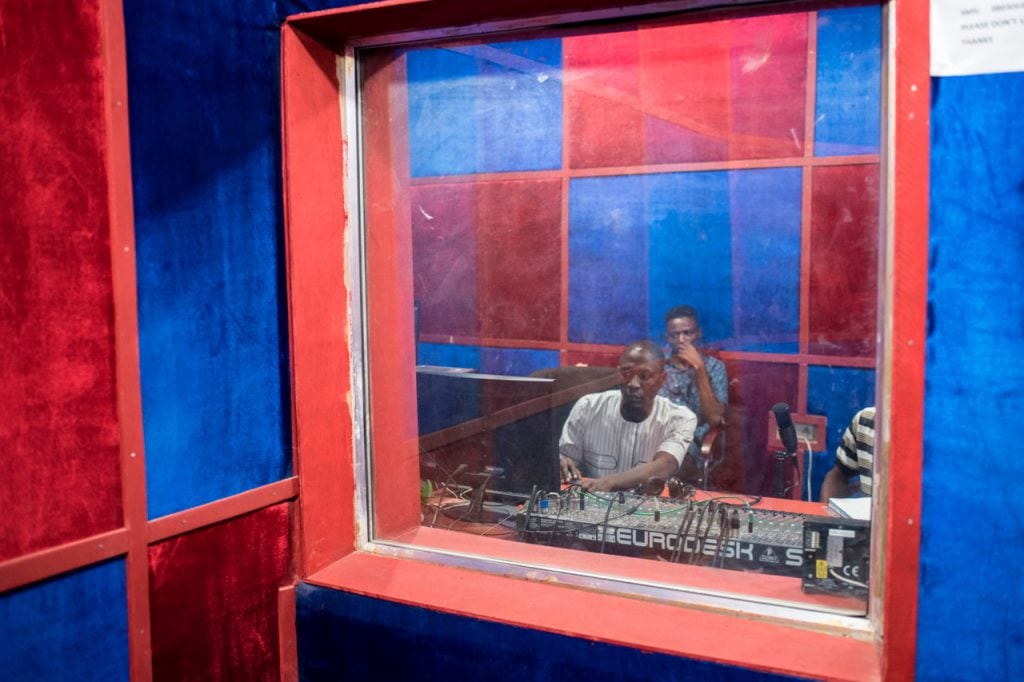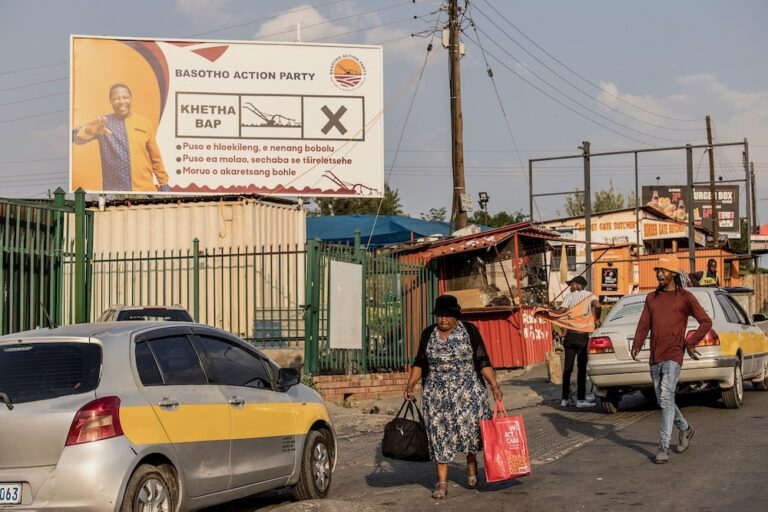The Media Foundation for West Africa reports on the assaults, arrests and detention of several journalists in the region in its latest quarterly report on freedom of expression.
This statement was originally published on mfwa.org on 9 April 2019.
Five journalists and two bloggers were detained in five incidents in the turbulent month of March 2019, which also saw four journalists assaulted in two separate incidents in West Africa.
The month began on a sad note for Obinna Don Norman, owner and editor-in-chief of The Realm News. Obinna was arrested and detained by the police on the very first day of the month while he was participating in a live political programme at Flo FM, based in Umahia, the capital of Abia State in Nigeria. The journalist has since been held at the Afara Ibeku Prison in Umuahia. He is charged with cyberstalking and harassment of Abia State Senator, Theodore Orji, on February 21, 2018.
In the second incident of detention, two popular bloggers were held in prison custody in Mauritania on charges of publishing a false story about the government. Abderrahmane Weddady and Sheikh Ould Jiddou were first summoned by the Public Prosecutor on March 22 over their Facebook posts about an alleged secret bank account supposedly owned by relatives of Mauritanian President, Mohamed Ould Abdel Aziz. They were interrogated and placed in detention by an investigating judge. Three days into their detention, police raided Weddady’s home and took away his computer. On March 27, the bloggers were transferred to the central prison of Nouakchott
Still in Mauritania, the police briefly detained two journalists and deleted recordings from their camera on March 26. Bilal Camara and Mohamed Lemine Ould Isselmou were covering a demonstration in front of the presidential palace in Nouakchott by mothers of orphans protesting against the closure of an NGO that cared for orphans.
There was another case of detention on March 26, this time in Guinea, where the police arrested Lansana Camara, deputy managing editor of the news portal conakrylive.info over an investigative story he had written about fuel procurement at the Ministry of Foreign Affairs. He was detained in the Conakry Central Prison for eight days, following a defamation complaint by the sector Minister.
In the fifth incident of arrest and detention, four armed men suspected to be operatives of the State Security Services (SSS) arrested Jones Abiri, publisher of Weekly Source newspaper, on March 30. Mr. Abiri was in the company of his colleagues at the premises of the newspaper’s offices at Yenogoa, Bayelsa State when he was arrested at gunpoint and taken away in a vehicle.
In the only incident of threat, Manasseh Azure Awuni of the Multimedia Group based in Accra, Ghana began receiving chilling threats from unknown persons after he did a politically sensitive investigative documentary about a vigilante group reportedly aligned to the ruling New Patriotic Party (NPP). The documentary was aired on March 7.
There were also cases of assaults against journalists and media organisations during the month under review.
A group of police officers in Mauritania perpetrated a wanton assault on a journalist, Mohamed Mahmoud Ould Khouye, on March 2. The journalist was returning home from work when he was accosted by a police patrol team. Despite answering their questions and identifying himself as a journalist, Ould Khouye was taken to a police station in Nouakchott and assaulted.
The indents of physical attacks continued, this time against a media house. On March 5, some unknown assailants attacked Joy FM, a radio station based in Monrovia, Liberia. The attackers disrupted the station’s transmission by cutting the cables connecting the antenna to the transmitter.
On March 14, a group of police officers brutalised Malik Sulemana and Raissa Sambou, both reporters, and Salifu Abdul Rahman, an assistant editor of the State-owned Ghanaian Times newspaper. The three were on their way to cover a story in Accra when a traffic incident resulted in a row between them and the police.
There was yet another attack on a radio station on March 15 when a pastor, Reverend Owusu Bempah, stormed the premises of Accra-based Radio XYZ accompanied by four thugs. The invaders said they were looking for one of the station’s presenters, Mugabe Maase, whom the pastor said had made derogatory remarks about him on his show.
In Togo on March 25, the media regulator, Haute Autorité de l’Audiovisuel et de la Communication (HAAC), in a communiqué revoked the licence of Bonero Lawson-Betum, owner and Managing Editor of La Nouvelle newspaper, for what it described as “deliberate refusal to respect the fundamental principles of journalism.” The revocation indefinitely bars Lawson-Betum from publishing La Nouvelle newspaper.
Amidst the gloom created by the above violations, Ghana provided some consolation and a measure of self-redemption for the three violations it recorded; the country’s Parliament finally passed into law the Right to Information Bill which had been before it for ten years. The law was passed on March 26, 2019, nearly 20 years after the bill was first drafted. The bill is expected to promote accountability and enhance the fight against corruption by facilitating access to public information, in line with Article 21 (1) (f) of the Constitution that guarantees the right to information.



